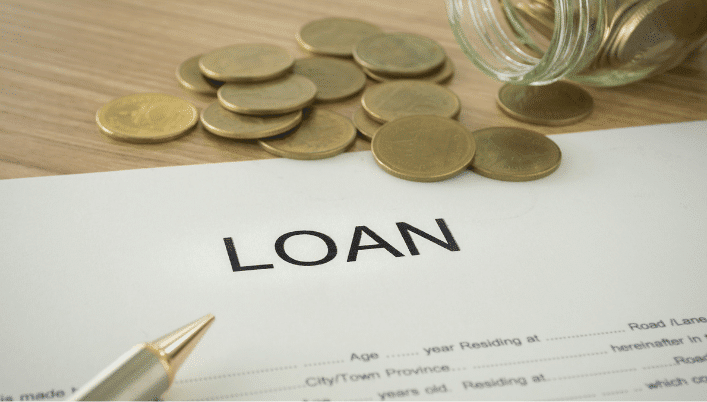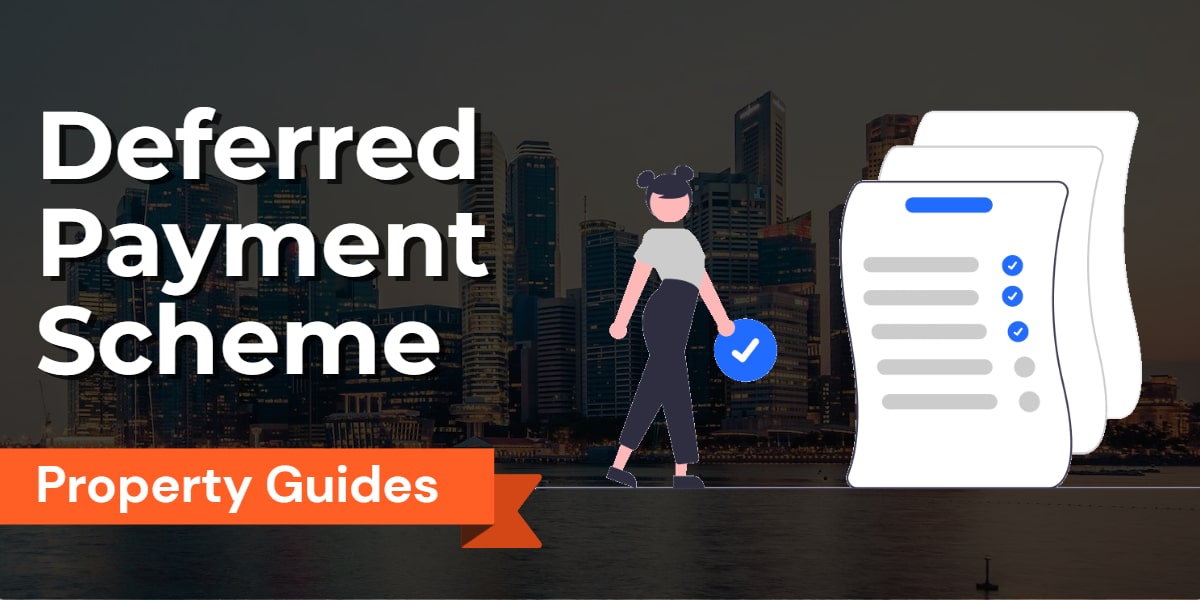
Are you embarking on the journey to homeownership?
Discover the power of CPF Home Loan.
These loans, offered by Singapore’s Central Provident Fund (CPF) Board, make your dream home more achievable.
By tapping into your CPF savings, you can reduce upfront costs and enjoy lower interest rates than traditional bank loans.
The benefits?
Flexibility for downpayments and repayments, competitive interest rates, and versatility across property types.
Key takeaways
- CPF Home Loan Overview: CPF Home Loan, offered by Singapore’s Central Provident Fund (CPF) Board, provides an option to use CPF savings for financing home purchases.
- Reduced Out-of-Pocket Expenses: Opting for a CPF Home Loan can lower out-of-pocket expenses, as it allows using CPF funds for downpayment and monthly repayments.
- Lower Interest Rates: CPF Home Loan typically offers competitive interest rates compared to traditional bank loans, resulting in potentially lower monthly payments.
- Flexibility and Convenience: CPF Home Loan provides flexibility by using CPF savings for both downpayment and loan repayments, catering to the borrower’s convenience.
- Versatility of Property Types: CPF Home Loan can be used for various property types, including HDB flats and private properties, making it suitable for diverse buyers.
- Choosing Wisely: Borrowers should evaluate their financial situation and goals to determine if a CPF Home Loan aligns with their needs.
- Eligibility Criteria: Eligibility for a CPF Home Loan depends on factors such as CPF savings, income, and age.
- CPF Board’s Role: The CPF Board administers CPF Home Loans, verifying eligibility, disbursing funds, and ensuring compliance with regulations.
- Loan Types: Borrowers can choose between HDB Loans and Bank Loans, each with its own benefits and considerations.
- Planning Ahead: Understanding the CPF Home Loan process and repayment options is essential for informed decision-making.
Introduction to CPF Home Loan and Its Benefits

When it comes to financing a home purchase, there are various options available, including a CPF Home Loan.
This loan is offered by the Central Provident Fund (CPF) Board, a government agency in Singapore.
It is designed to help individuals fund their home purchases and offers several benefits that make it an attractive choice for many home buyers.
Why should I consider a CPF home loan?
A CPF home loan can be an excellent option for individuals who want to use their CPF savings to finance their home purchases.
Using CPF funds, home buyers can reduce their out-of-pocket expenses and enjoy lower interest rates than traditional bank loans.
What are the advantages of using CPF for my home loan?
Using CPF for your home loan has several advantages:
- CPF funds can be used for downpayment and monthly loan repayments, providing flexibility and convenience.
- CPF offers competitive interest rates, potentially resulting in lower monthly installments than bank loans.
- CPF savings can be used for various properties, including HDB flats and private properties, making it a versatile option for buyers.
How does CPF affect the repayment of my home loan?
CPF savings can offset the monthly loan repayments, reducing the amount of cash that needs to be paid out-of-pocket.
Using CPF, homeowners can pay off their loans partially or in full, depending on their financial situation.
It’s important to note that CPF savings for housing loan repayment cannot be withdrawn as cash and will be deducted from the CPF accounts.
Understanding the Relationship Between CPF and Housing Loan

Specific criteria must be met for individuals eligible for a housing loan using CPF funds.
The CPF Board plays a crucial role in the application and approval process of CPF home loans.
Understanding the relationship between CPF and housing loans is essential to navigate the process effectively.
How does CPF affect my eligibility for a housing loan?
CPF savings play a significant role in determining eligibility for a housing loan.
The amount of CPF savings you have in your account and your income and age contribute to your eligibility.
The CPF Board considers these factors to ensure you have sufficient funds to meet the monthly loan repayments.
What is the role of the CPF Board in the housing loan process?
The CPF Board acts as the administrator of CPF home loans.
They facilitate the application process, verify borrowers’ eligibility, and disburse the loan funds.
The CPF Board also ensures compliance with the regulations and guidelines set by the government to protect both lenders and borrowers.
What types of housing loans are available? HDB Loan vs. Bank Loan
Regarding housing loans, two primary options are available: HDB Loan and Bank Loan.
The Housing and Development Board offers HDB loans, while commercial banks provide Bank Loans.
Each of these loan types has its advantages and considerations.
Essential Information About CPF Home Loan Process
If you are considering a CPF Home Loan, it’s essential to understand the process involved.
This will help you make informed decisions and ensure a smooth application and approval process.
What are the necessary steps in applying for a CPF home loan?
The application process for a CPF home loan involves several steps.
Firstly, you must determine your eligibility based on CPF savings, income, and age.
Once eligible, you can proceed with the loan application through the CPF Board.
Providing all the required documents and information is essential to facilitate the approval process.
How long does the CPF home loan approval process take?
The CPF home loan approval process typically takes a few working days, provided that all the required documents and information are provided accurately.
The CPF Board reviews the application and verifies the eligibility before approving the loan.
What factors should I consider in choosing between HDB Loan and Bank Loan?
Several factors should be considered when deciding between an HDB Loan and a Bank Loan.
These include interest rates, loan repayment terms, flexibility, and personal financial goals.
Each loan type has its advantages and considerations, so evaluating your options is essential based on your specific requirements.
How to Use Your CPF Savings for Housing Loan

One of the key benefits of a CPF home loan is the ability to use your CPF savings to finance the downpayment of your property purchase.
Understanding how to utilize your CPF savings effectively can help you optimize your home-buying process.
How can I use my CPF savings for the downpayment of my property purchase?
To use your CPF savings for the downpayment, you need to make an application through the CPF Board.
The amount that can be used depends on various factors, such as the property price, loan amount, and your available CPF funds.
The CPF Board will assess your application and determine the approved amount accordingly.
What is the CPF contribution cap for housing loan repayment?
The CPF contribution cap for housing loan repayment is the maximum amount that can be deducted from your monthly CPF accounts to offset your loan repayments.
The contribution cap depends on the type of loan and your age.
It’s essential to be aware of this cap to ensure that your CPF savings are utilized optimally while meeting your monthly loan obligations.
How can I check the amount of CPF I can use for my housing loan?
To find out the amount of CPF you can use for your housing loan, check with the CPF Board.
They will provide the necessary information and guide you through the application process.
It’s essential to clearly understand your CPF savings and how they can be utilized to make informed decisions.
Types of Housing Loans Available: HDB Loan vs. Bank Loan

Choosing the correct type of housing loan is crucial to ensure your financing needs are effectively met.
Understanding the differences between an HDB Loan and a Bank Loan can help you make an informed decision.
What is the difference between an HDB Loan and a Bank Loan?
The main difference between an HDB Loan and a Bank Loan lies in the source of financing.
HDB Loans are offered directly by the Housing and Development Board, while commercial banks provide Bank Loans.
Each loan type has its features and considerations, and it’s essential to evaluate them based on your specific requirements.
What factors should I consider in choosing between an HDB Loan and a Bank Loan?
Several factors should be considered when choosing between an HDB Loan and a Bank Loan.
These include interest rates, loan tenure, downpayment requirements, repayment terms, and flexibility.
Assessing your financial situation and future goals is essential to determine which loan type aligns best with your needs.
Can I use my CPF savings for both HDB Loan and Bank Loan?
Yes, you can utilize your CPF savings for HDB and Bank Loans.
The CPF savings can offset the loan amount, reducing the cash required for downpayment and monthly repayments.
It provides flexibility for borrowers who opt for either loan type.
Monthly Instalment Calculation and Loan Repayment Options

How are monthly installments calculated?
When considering a CPF Home Loan, it is essential to understand how the monthly installments are calculated.
The outstanding home loan amount and interest rate determine the monthly installment.
The exceptional home loan amount is the remaining balance of the loan you have taken, while the loan interest rate is the rate at which the loan accrues interest over time.
Using a mortgage repayment strategy, you can calculate the monthly housing installment that suits your budget.
What are the different loan repayment options available?
CPF Home Loan provides you with various loan repayment options to choose from.
These options include partial repayment, full repayment, and voluntary refund.
It is essential to understand each option’s financial implications before deciding.
Consult a financial advisor to understand the best repayment option for your situation.
Can I use CPF for loan repayment?
You can use your CPF Ordinary Account (OA) savings to repay your CPF housing loan.
The monthly deductions from your CPF OA will be used to pay off your housing loan.
However, it is essential to note that these withdrawals will affect your retirement adequacy, so planning your CPF usage wisely is essential.
Exploring the Role of CPF in Financing Your Home Purchase

What is the role of CPF in financing a home purchase?
CPF plays a significant role in financing your home purchase.
It provides you with a source of retirement funds that can be used to finance your property purchase.
By utilizing your CPF Ordinary Account savings, you can pay for the downpayment, monthly installments, and other related costs.
How does CPF contribute towards the outstanding home loan?
CPF contributes towards the outstanding home loan by monthly deducting funds from your CPF Ordinary Account.
These funds are then used to repay the loan.
The CPF contribution towards the exceptional home loan depends on the loan amount, interest rate, and the balance purchase price of the property.
What is the house valuation price, and how does it affect CPF withdrawal?
The house valuation price is the estimated market value of your property.
A professional valuator determines it.
The house valuation price affects CPF withdrawal as it determines the withdrawal limit from your CPF Ordinary Account.
The CPF withdrawal limit for a property is based on the lower purchase price or the valuation price.
Considering the house valuation price when planning your CPF usage for your property is essential.
How to Apply for CPF Housing Loan: Step-by-Step Guide
What are the steps involved in applying for a CPF housing loan?
Applying for a CPF housing loan involves several steps.
First, you must ensure you meet the eligibility criteria set by CPF.
Once you fulfill the requirements, you can book an appointment with the HDB office for the loan application.
You will need to submit the required legal documentation for the CPF housing loan application during the work.
The application will be processed within a few working days upon receipt of your request.
How can I book an appointment and visit the HDB office for the loan application?
To book an appointment with the HDB office, you can visit their official website or contact their customer service.
The HDB office and branches offer various services related to CPF housing loan applications.
It is important to note that services at the HDB office and extensions are by appointment, so book your appointment well in advance.
What legal documentation is required for the CPF housing loan application?
You must submit specific legal documentation when applying for a CPF housing loan.
This includes proof of identity, income documents, property documents, and any other documents required by HDB.
Gather all the necessary documents and submit them with your application to ensure timely loan processing.
Booking an Appointment and Visiting HDB Office for Loan Application

How can I book an appointment with the HDB office?
To book an appointment with the HDB office, you can either make an appointment online or contact their customer service.
The online appointment system allows you to select a convenient date and time for your visit.
It is recommended to book your appointment well in advance to avoid any scheduling conflicts.
What are the benefits of visiting the HDB office for the loan application?
Visiting the HDB office for the loan application provides several benefits.
Firstly, you can receive personalized assistance from the HDB staff, who can guide you through the application process and clarify any doubts or queries.
Additionally, it allows for face-to-face interactions, which can help ensure a smooth and efficient application process.
What are the eligibility criteria for a CPF housing loan?
You must fulfill specific criteria to be eligible for a CPF housing loan.
These criteria include being a Singapore citizen, having sufficient CPF OA savings, and meeting the housing ratios set by CPF.
You must check the eligibility criteria before applying for the loan to ensure that you meet the requirements.
Differentiating Between Partial and Full Repayment of CPF Housing Loan
What is the difference between partial and complete repayment of a CPF housing loan?
Partial repayment of CPF housing loans refers to periodic rebates towards reducing the outstanding loan amount while retaining some CPF OA savings.
On the other hand, total compensation involves paying off the due loan amount, including the interest.
Both options have their financial implications, so evaluating your financial situation before deciding which option is best for you is essential.
What are the financial implications of partial and complete repayment options?
The financial implications of partial and complete repayment options depend on various factors, such as the outstanding loan amount, the loan interest rate, and your personal financial goals.
Partial repayment allows you to maintain a balance between using your CPF OA savings for the loan repayment and ensuring sufficient retirement funds.
A full refund, on the other hand, eliminates the loan burden but may deplete your CPF OA savings significantly.
How does a voluntary refund affect the CPF housing loan?
Voluntary refund refers to returning the CPF OA savings utilized for the housing loan.
By making voluntary refunds, you can reduce the outstanding loan amount and save on the interest payable.
However, it is essential to note that the refund is irreversible and cannot be reutilized for other purposes.
Discuss your financial situation with a financial advisor before opting for a voluntary repayment.
Exploring the Home Protection Scheme (HPS) and Its Benefits
How does HPS protect CPF home loan borrowers?
The Home Protection Scheme (HPS) protects CPF home loan borrowers in the unfortunate event of loss of income, permanent disability, or terminal illness.
Through the HPS, CPF home loan borrowers can have peace of mind as it helps cover their outstanding housing loan, ensuring that their loved ones are not burdened with financial responsibilities if something happens to them.
What are the benefits of HPS?
The benefits of HPS are significant.
First and foremost, it offers financial security to CPF home loan borrowers and their families in times of crisis.
In the event of death, the HPS will pay off the outstanding housing loan balance, relieving the burden on the borrower’s family.
Additionally, the HPS provides coverage for permanent disability and terminal illness, ensuring that borrowers are protected against the unexpected.
This coverage offers peace of mind and financial stability for CPF home loan borrowers.
How can you apply for HPS?
To apply for HPS, CPF home loan borrowers can submit an online application through the CPF website.
The process is simple and convenient, and borrowers can apply using their SingPass.
Alternatively, borrowers can visit their nearest HDB office to apply in person.
They will need to bring along their relevant financial information and supporting documents.
It is advisable to book an appointment using the online booking system available on HDB’s website to ensure a smoother application process.
Understanding Deductions, Interest Rates, and Loan Repayment Strategies
What are the deductions applicable to CPF home loans?
Regarding CPF home loans, there are various deductions that borrowers should be aware of.
One such deduction is the monthly contribution to housing loans, automatically deducted from the borrower’s CPF account.
In addition, borrowers should consider other deductions, such as the Retirement Sum and CPF Special Account (SA) contributions, as these can impact the amount of CPF savings available for loan repayments.
How do interest rates affect CPF home loan repayments?
The interest rate of a CPF home loan plays a crucial role in determining the monthly loan repayments.
Different interest rate options are available, such as Fixed-Rate Housing Loans and Floating-Rate Home Loans.
Borrowers must carefully consider the interest rate options and choose the one that best suits their financial situation.
It is important to note that interest rates can fluctuate, so borrowers should be prepared for potential changes in their monthly repayments.
What are some effective loan repayment strategies?
When it comes to loan repayment strategies, there are several options that borrowers can consider.
One effective method is to make partial prepayments on the loan whenever possible.
This helps reduce the outstanding principal amount, lowering the overall interest payable and shortening the loan tenure.
Another strategy is maintaining a healthy financial cushion by setting aside emergency savings and ensuring that household expenses are well-managed.
Maximizing Your CPF Savings for a Comfortable Retirement
How can you utilize your CPF savings for your home loan?
Borrowers can utilize their CPF savings to fund their home loans.
CPF allows for CPF Ordinary Account (OA) savings for housing purposes, including downpayment and monthly mortgage repayments.
However, it is essential to balance utilizing CPF savings for housing loan repayment and ensuring enough CPF savings for retirement needs.
What is the Retirement Sum, and how does it impact your CPF savings?
The Retirement Sum is the CPF savings set aside to provide a monthly income during retirement.
It is important to note that the Retirement Sum is a mandatory requirement by CPF and impacts the availability of CPF savings for other purposes, including housing loan repayment.
Borrowers need to carefully consider the impact of the Retirement Sum on their CPF savings and plan accordingly to ensure a comfortable retirement.
Can you withdraw CPF money for housing loan repayment?
Yes, borrowers can withdraw their CPF savings to make housing loan repayments.
However, it is essential to note that the amount available for withdrawal will depend on various factors, including the outstanding CPF loan amount, the CPF savings in the OA, and the borrower’s age.
Borrowers should assess their financial situation and consult CPF or their respective housing loan financier to determine the feasibility and implications of withdrawing CPF money for housing loan repayment.
Balancing Loan Repayment and Retirement Adequacy: A Guide
How can you balance your loan repayment and retirement savings?
Balancing loan repayment and retirement savings can be challenging but crucial for long-term financial stability.
Borrowers should assess their financial capabilities and strike a balance between the two.
While it is essential to prioritize loan repayment and clear debt, borrowers should also ensure that they set aside enough savings for retirement.
Seeking the guidance of a financial advisor can be beneficial in making informed decisions.
What factors should you consider when deciding on CPF loan repayment?
When deciding on CPF loan repayment, borrowers should consider their current income, financial obligations, and future goals.
It is essential to assess whether utilizing CPF savings for loan repayment aligns with their overall financial plan.
Borrowers should also consider the impact of CPF loan repayment on their retirement adequacy and seek professional advice if needed.
How does CPF loan repayment impact your retirement adequacy?
Carefully managing CPF loan repayment is crucial in ensuring retirement adequacy.
Utilizing CPF savings for housing loan repayment may reduce the savings available for retirement.
Borrowers should assess their financial situation, consider alternate sources of income for retirement, and plan accordingly to ensure a secure and comfortable retirement.
Financial Implications of CPF Housing Loan: Covering Legal and Capital Aspects
What legal aspects should you know when taking a CPF housing loan?
When taking a CPF housing loan, borrowers should know various legal aspects.
It is essential to understand the terms and conditions of the loan, including the rights and responsibilities of both the borrower and the lender.
Additionally, borrowers should know the legal processes involved in the transfer of ownership, mortgage registration, and execution of the loan agreement.
Seeking legal advice can ensure a smooth transaction.
What are the differences between bank mortgage loans and CPF housing loans?
Bank mortgage loans and CPF housing loans differ in several aspects.
Commercial banks offer bank mortgage loans, whereas the government provides CPF housing loans.
Bank mortgage loans typically have different interest rate structures and repayment terms than CPF housing loans.
Borrowers should carefully compare the terms and conditions of both options and choose the one that best suits their financial needs.
How do capital aspects affect CPF housing loan decisions?
Capital aspects play a significant role in CPF housing loan decisions.
Borrowers must consider the loan amount, loan tenure, and loan-to-value ratio.
These capital aspects can impact the affordability of the loan and the monthly repayment amount.
It is advisable to assess and plan for these aspects when making CPF housing loan decisions.
Conclusion
Embarking on the journey to secure your dream home through a CPF Home Loan is a strategic move that promises a brighter financial future.
As we’ve delved into the intricacies of this innovative approach, you’ll soon discover the potent fusion of utilizing your CPF savings and nurturing your homeownership aspirations.
Imagine a world where you can harness the power of your CPF funds to make your homeownership dreams a reality and safeguard your loved ones in times of need.
The Home Protection Scheme (HPS) is a guardian, providing a safety net that ensures your legacy remains intact, even in unforeseen circumstances.
Moreover, exploring loan repayment strategies, interest rates, and financial wisdom unlock the art of balance.
With guidance, you can confidently navigate the intricate paths of loan repayment while still securing a comfortable and worry-free retirement.
Frequently Asked Questions
What is a CPF Home Loan?
It allows individuals to use their CPF savings to purchase a residential property.
What do I need to qualify for a CPF Home Loan?
These criteria include being a Singapore citizen or permanent resident, having sufficient CPF savings, and meeting the eligibility conditions for the specific type of property you want to purchase.
How much can I borrow with a CPF Home Loan?
However, it is essential to note that the CPF Board may impose additional requirements or limits based on your financial situation.
Can I use my CPF Special Account (SA) for the downpayment of a CPF Home Loan?
However, please note that the CPF Board sets limits and rules for using CPF savings for housing payments.
What is the average price of residential properties in Singapore?
It is advisable to consult with a real estate agent or research the current market trends to understand better the average prices in the specific area you are interested in.
What are construction loans?
These loans are usually short-term and have different requirements and interest rates than regular housing loans.
What is HPS cover?
It helps to safeguard the insured member’s family by ensuring that the outstanding housing loan is paid off in the event of the insured member’s death, terminal illness, or total permanent disability.
What is a fixed deposit-linked rate home loan?
This means that the interest rate on the loan can fluctuate depending on the movement of the fixed deposit rates.
Can I use my CPF savings to make monthly housing installments?
However, it is essential to note that the CPF Board sets limits and rules for using CPF savings for housing payments.
What is the process for applying for a CPF Home Loan?
You can apply online through the CPF Board’s website using your SingPass or visit the CPF Board’s office in person.
The process may involve providing financial information, submitting necessary documents, and waiting for approval from the CPF Board.
How long does it take for a CPF Home Loan application to be processed?
Generally, it takes around ten working days to receive the request from the CPF Board.
However, please note that the actual processing time may vary.












